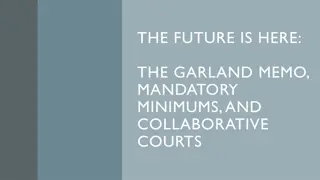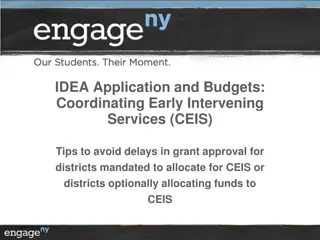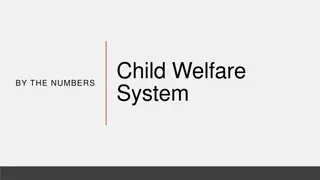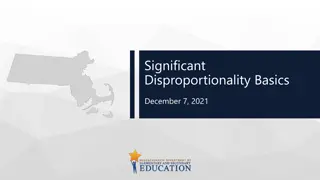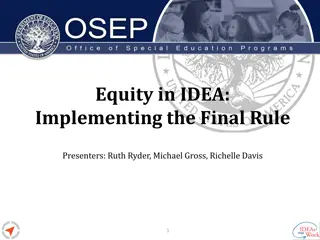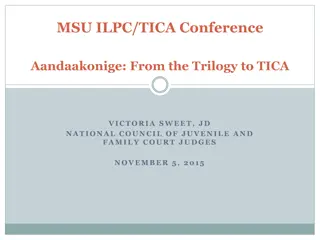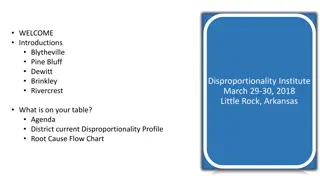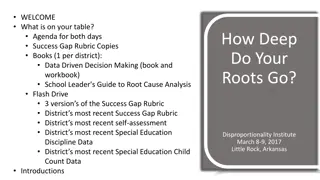Reform in Criminal Prosecution: The Garland Memo Impact
US Attorney General Merrick Garland's memos on general policies and drug cases highlight considerations for charging, mandatory minimums, and sentencing recommendations to address disproportionality and promote tailored approaches in criminal prosecution. The memos emphasize alternatives and case-sp
3 views • 10 slides
Coordinating Early Intervening Services (CEIS) in IDEA Applications: Tips for Efficient Grant Approval
Coordinated Early Intervening Services (CEIS) under IDEA address disproportionality in school districts by providing academic and behavioral support to K-12 students not identified for special education. Districts allocate 15% of their IDEA funds to CEIS if significant disparities in identification
0 views • 10 slides
Challenges and Opportunities in the Child Welfare System
Addressing challenges of disproportionality, proactive solutions, and keeping families together are key in the child welfare system. With a focus on family voice and support, success indicators include reduced referrals to foster care, improved permanency outcomes, and enhanced child well-being.
0 views • 9 slides
Promoting Equity in Education: Addressing Significant Disproportionality
In the pursuit of educational equity, we must address significant disproportionality that affects students of color, English learners, and those from underserved backgrounds. This involves recognizing the root causes of academic challenges and creating inclusive, culturally responsive learning envir
1 views • 39 slides
Equity in IDEA: Implementing the Final Rule Presentation
Recap the final rule on equity in IDEA, focusing on standard methodology, remedies, important dates, and addressing questions. Discuss the methodology requirements, including data collection on disproportionality and disciplinary actions. Explore the standard methodology components, like risk ratios
0 views • 49 slides
Custody as a Last Resort: Youth Justice Service Report
The report emphasizes the need to avoid unnecessary criminalization of under-18s and highlights the detrimental impact of custody on vulnerable children. It discusses the over-representation of Black, Asian, and Minority Ethnic children in custody and the lack of evidence supporting custody as a mea
0 views • 7 slides
Addressing Disproportionality in Juvenile and Family Courts: Insights from TICA Conference
The TICA Conference presentation by Victoria Sweet sheds light on racial disproportionality, lack of response, coordination of services, and other key issues in the juvenile and family court systems. The content discusses challenges, revised guidelines, required timelines, and potential resolutions
0 views • 10 slides
Analysis of Disproportionality in Special Education Disciplinary Practices
This document delves into the issue of disproportionality in special education disciplinary practices, focusing on suspension and expulsion rates among students with Individualized Education Programs (IEPs). It highlights significant differences in rates based on race/ethnicity and outlines indicato
2 views • 10 slides
Exploring Disproportionality in Education: Root Cause Analysis and Data-Driven Decision Making
Delve into the complexities of educational disproportionality through the lens of root cause analysis and data-driven decision making. Discover ways to address issues of representation and identification in special education, while considering the impact of deep-rooted factors on outcomes and dispar
0 views • 27 slides
